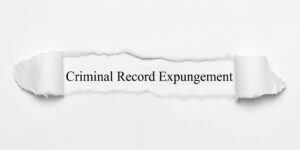California’s Three Strike Rule, enacted in 1994, is one of the state’s most stringent laws. It is designed to deter repeat offenders by imposing harsher sentences on those with prior serious or violent felony convictions. This law has profoundly impacted the criminal justice system, affecting thousands of individuals and raising significant debates regarding its fairness and effectiveness.
Understanding how the Three Strike Rule operates, its implications for those convicted, and the ongoing legal challenges it faces is crucial for anyone navigating the California legal landscape. We aim to help you dive into some of the intricacies of the Three Strike Rule, making it easier to understand how it might apply to you. If you have any questions or need any assistance relating to your case, please reach out to us. Bernal Law is happy to assist you with your criminal defense case when you retain our support.
What Is the Three Strike Rule?
A rule enacted in California in 1994, the Three Strike Rule is intended to increase prison sentences for repeat offenders. In particular, individuals who are convicted of two or more serious or violent felonies and then convicted of another will face more severe punishment and consequences.
The law aims to reduce crime overall by keeping repeat offenders out of communities for more significant periods of time.
Those subject to the Three Strike Rule are more likely to receive lengthy prison sentences. These individuals are also much less likely to face other consequences outside of prison time, as the court system is focused on keeping them out of the communities they may negatively impact. This means less focus is on fines, community service, or other penalties.
How Does the Three-Strike Rule Work?
As each strike is given to a convicted individual, consequences become more severe.
First Strike
After the first strike or only one serious or violent felony, the convicted person faces the typical sentence.
Second Strike
If an individual receives one serious or violent felony and then receives a conviction for any other felony, the consequences become more severe. Punishment becomes twice the required term outlined by law. In this case, the court will often refer to offenders as “second strikers” based on the provision.
Third Strike
When a person has two or more previous violent or serious felony convictions, the sentence for any new felony conviction becomes even more severe. The minimum sentence is life imprisonment with a minimum term of 25 years.
Consecutive Sentencing and Unlimited Aggregate Terms
Once a striker has been convicted for multiple offenses, they become eligible for concurrent sentencing. This means that someone who has been convicted of two or more third-strike offenses will receive a minimum term of 50 years to life.
Furthermore, the individual is no longer eligible for concurrent sentencing. A concurrent sentence means that someone faces all of their punishments at once. For example, if someone is convicted of three crimes that would typically result in 10 years each of prison time at a minimum, they would spend only 10 years in prison.
Unlimited Aggregate Terms
Under the Three Strike Rule, offenders may also be subject to unlimited aggregate terms. This means there is no upper limit of felonies that can be included in an individual’s consecutive sentence.
Learn More About How Bernal Law Can Assist You
If you or someone you know is affected by California’s Three Strike Rule, understanding the nuances of this law is essential. At Bernal Law, we leverage our extensive experience on both sides of the courtroom to craft the most effective defense strategies. This unique perspective helps us anticipate their moves and build a strong defense for you.
Our commitment to providing personalized and thorough legal representation is unmatched. We understand the severe consequences of a third strike conviction and work tirelessly to protect your rights and freedom. If you’re facing criminal charges and need a skilled defense, contact us today at (619) 736-9092 or through our contact form.




